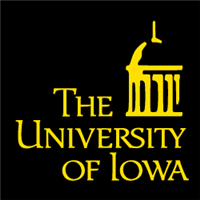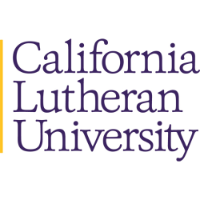What do they do?
Obtain evidence, take statements, produce reports, and testify to findings regarding resolution of fraud allegations. May coordinate fraud detection and prevention activities.
Also known as:
Anti-Fraud Operations Analyst, Casino Gaming Regulator, Certified Fraud Examiner (CFE), Confidential Investigator, Financial Crimes Investigator, Financial Investigator, Forensic Accountant, Fraud Analyst, Investigator, Special Investigations Unit Investigator (SIU Investigator)
-
1%
Change
Ranks #N/A in job growth rate340Job Openings
Ranks #N/A in net job growth
-
University of Iowa
Iowa City, IA
-
University of Southern California
Los Angeles, CA
-
California Lutheran University
Thousand Oaks, CA
-
University of Oregon
Eugene, OR
-
Binghamton University
Vestal, NY
Looking for colleges that offer a specific major? Use the College Match Tool to find your best-matched schools and discover your estimated Net Price!
- Doctorate or Professional Degree (4%)
- Master's degree (24%)
- Bachelor's degree (44%)
- Associate's degree (6%)
- Some college, no degree (13%)
- High school diploma equivalent (8%)
- Less than high school diploma (1%)
People in this career often have these skills:
- Active Listening - Giving full attention to what other people are saying, taking time to understand the points being made, asking questions as appropriate, and not interrupting at inappropriate times.
- Writing - Communicating effectively in writing as appropriate for the needs of the audience.
- Reading Comprehension - Understanding written sentences and paragraphs in work-related documents.
- Speaking - Talking to others to convey information effectively.
- Critical Thinking - Using logic and reasoning to identify the strengths and weaknesses of alternative solutions, conclusions, or approaches to problems.
- Complex Problem Solving - Identifying complex problems and reviewing related information to develop and evaluate options and implement solutions.
- Judgment and Decision Making - Considering the relative costs and benefits of potential actions to choose the most appropriate one.
- Active Learning - Understanding the implications of new information for both current and future problem-solving and decision-making.
- Coordination - Adjusting actions in relation to others' actions.
- Social Perceptiveness - Being aware of others' reactions and understanding why they react as they do.
People in this career often know a lot about:
- English Language - Knowledge of the structure and content of the English language including the meaning and spelling of words, rules of composition, and grammar.
- Economics and Accounting - Knowledge of economic and accounting principles and practices, the financial markets, banking, and the analysis and reporting of financial data.
- Law and Government - Knowledge of laws, legal codes, court procedures, precedents, government regulations, executive orders, agency rules, and the democratic political process.
- Computers and Electronics - Knowledge of circuit boards, processors, chips, electronic equipment, and computer hardware and software, including applications and programming.
- Administration and Management - Knowledge of business and management principles involved in strategic planning, resource allocation, human resources modeling, leadership technique, production methods, and coordination of people and resources.
- Mathematics - Knowledge of arithmetic, algebra, geometry, calculus, statistics, and their applications.
- Customer and Personal Service - Knowledge of principles and processes for providing customer and personal services. This includes customer needs assessment, meeting quality standards for services, and evaluation of customer satisfaction.
- Education and Training - Knowledge of principles and methods for curriculum and training design, teaching and instruction for individuals and groups, and the measurement of training effects.
People in this career often have talent in:
- Written Expression - The ability to communicate information and ideas in writing so others will understand.
- Oral Comprehension - The ability to listen to and understand information and ideas presented through spoken words and sentences.
- Problem Sensitivity - The ability to tell when something is wrong or is likely to go wrong. It does not involve solving the problem, only recognizing that there is a problem.
- Written Comprehension - The ability to read and understand information and ideas presented in writing.
- Oral Expression - The ability to communicate information and ideas in speaking so others will understand.
- Deductive Reasoning - The ability to apply general rules to specific problems to produce answers that make sense.
- Inductive Reasoning - The ability to combine pieces of information to form general rules or conclusions (includes finding a relationship among seemingly unrelated events).
- Speech Recognition - The ability to identify and understand the speech of another person.
- Speech Clarity - The ability to speak clearly so others can understand you.
- Near Vision - The ability to see details at close range (within a few feet of the observer).
- Information Ordering - The ability to arrange things or actions in a certain order or pattern according to a specific rule or set of rules (e.g., patterns of numbers, letters, words, pictures, mathematical operations).
- Flexibility of Closure - The ability to identify or detect a known pattern (a figure, object, word, or sound) that is hidden in other distracting material.
People in this career often do these activities:
- Gather financial records.
- Interview witnesses, suspects, or claimants.
- Prepare legal or investigatory documentation.
- Document information related to legal proceedings.
- Maintain data in information systems or databases.
- Investigate legal issues.
- Supervise employees.
- Testify at legal or legislative proceedings.
- Collect evidence for legal proceedings.
- Advise others on business or operational matters.
- Advise others on legal or regulatory compliance matters.
- Develop business or financial information systems.
- Analyze business or financial data.
- Update professional knowledge.
- Assess risks to business operations.
- Train personnel to enhance job skills.
- Obtain documentation to authorize activities.
- Inform individuals or organizations of status or findings.
- Negotiate contracts with clients or service providers.
- Detain suspects or witnesses.
- Apprehend criminal suspects.
This page includes data from:

 Occupation statistics: USDOL U.S. Bureau of Labor Statistics Occupational Employment Statistics
Occupation statistics: USDOL U.S. Bureau of Labor Statistics Occupational Employment Statistics









